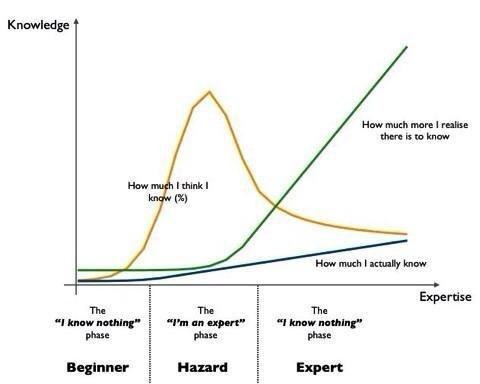Recently I came over another Project Management statistic which states that more than half of all projects do not meet their time, cost, or quality objectives, and that 19% are even cancelled without having achieved any benefit. At a volume of ca. $820 Billions in IT projects alone this equals a total write-off of $156 Billions! Other research shows that big companies have an over-proportional share in that…
Did you ever participate in a project staffing solicitation? Then you surely have experienced how far this is sometimes missing the point of the actual requirements, and that a tailor-made offer would have fit much better.
If all had the same picture

In principal solicitations should provide the advantage to make offers comparable and to cut cost. This objective would probably be well achievable if all participants would have the necessary prerequisites. The demand side should have a clear, professionally profound view on the required services and their potential variations, guided by the intention to choose the best solution possible. The bidders should also understand the requirements exactly and judge / disclose their relevant capabilities correctly, even if they rather decline if insufficient.
Unfortunately this ideal picture isn’t reality as I can see in nearly all solicitations for project management services at big companies or public authorities. Just as if they wanted to prevent that their projects are staffed properly and lead to success. Some Examples:
Cheap beats competent
An airline has started an initiative to assess, document, analyze, and, where reasonable, improve all of its business processes. For this purpose it even implemented a new executive position “Chief Process Officer”. Now the procurement department is looking for a consultant who should cover the described tasks. The online application process first asks for the daily salary rate…

I know the procurement price list structure at this company from my older experiences quite well, including the fact that it caps many sophisticated services at a standard unattractive for really qualified candidates. The assignment probably is also too extensive and complex to be covered by one single person. But the solicitation doesn’t allow for submitting a team proposal. As a result only a cheap candidate overestimating himself will have a chance. And thus the project’s outcome is pre-programmed: It will take longer and will get much more expensive than anticipated, and its result and benefit for the company is doubtful.

Or: An international logistic firm is looking for an IT Multi-Project Manager with vast experience (min. 10 years as a project manager, PM certification, program management experience, several mega projects etc.). At the procurement department the “consultant” allowance for this job is 70 Euros per hour all inclusive…
To my understanding of the requirements it needs a senior management, profound method skills and leadership qualities that will not be found at a cheap but insufficiently senior and qualified project manager. To ensure project success this “savings” variant is definitely not recommendable. But the solicitation has, according to an order “from above”, to be conducted by the procurement and “Preferred Suppliers”, who in most cases are inappropriate and overwhelmed by recruiting qualified executive positions. Or do you hire your General Manager and Department Leaders this way? It probably would be much more reasonable to have skills instead of the price as criteria for the pre-selection, and to have HR do the recruitment because of their experience with candidate assessments, wouldn’t it?
Wrong priorities at qualifications
One more representative example: An experienced engineer (elaborate description of technical and industry know how is given) is searched for as project lead. Talking about ensuring delivery to contract, dealing with a challenging customer, coordinating multiple suppliers and a big team of specialists distributed over several locations. Project management experience is “of advantage”…
Project engineer or project manager – do they look for the technical solution or for the project’s success and ROI? And guess whose leading ends up more often in delays and/or budget issues? Isn’t it natural that in distress people will concentrate on the things they know best? Technical subject matter experts shouldn’t be the project managers; else conflicts in time and objectives are ahead. Rather combine the core competencies in a double head: an engineer for the technics and a manager for project planning and consequent control. On corporate level you usually have two responsible executives cooperating for this!
Careless deciders
The examples mainly show how few the responsible C-level persons know about project work. The requirements to the project manager’s job, but also to the executing organization, even to themselves as responsible managers mostly do not belong to the knowledge base of the deciders. The solicitation documents thus are equally poor, and the projects will be “processed” equally insufficiently. Guess how disappointing their results are in the end.
Be curious for the second part of this article in which I will show how particularly big companies and public authorities do hard to help their projects and investments if these have slipped into distress. You probably know some prominent examples…
